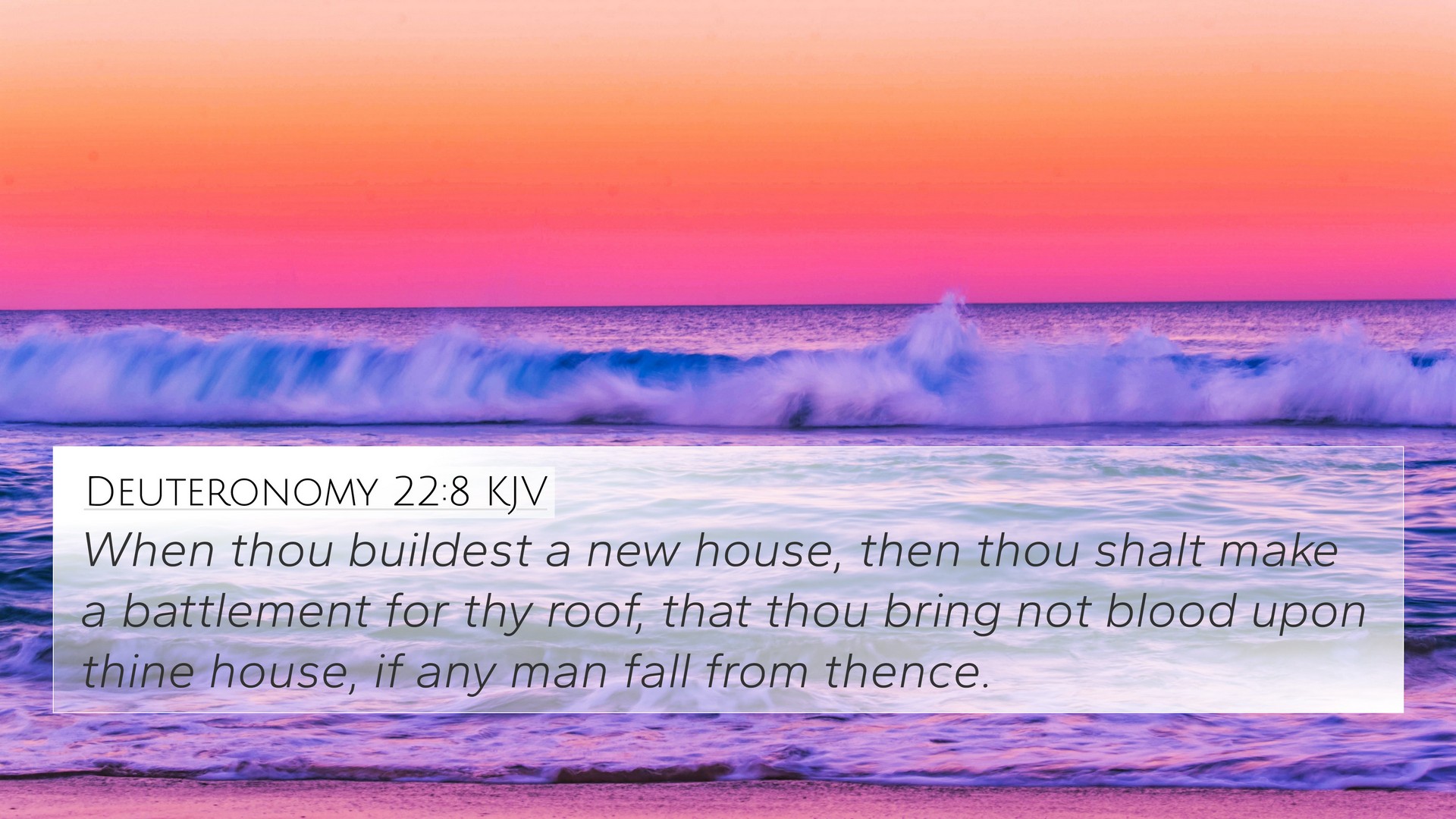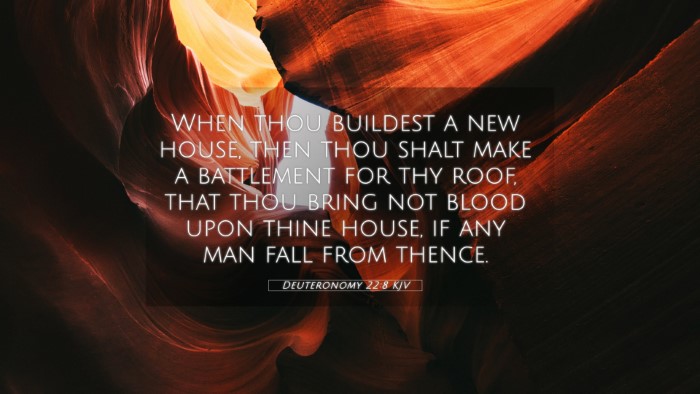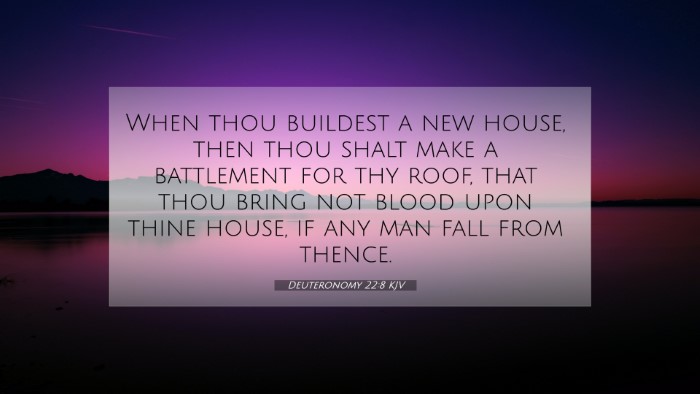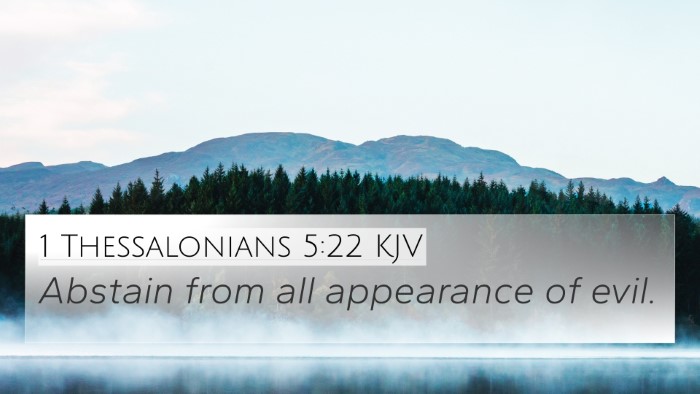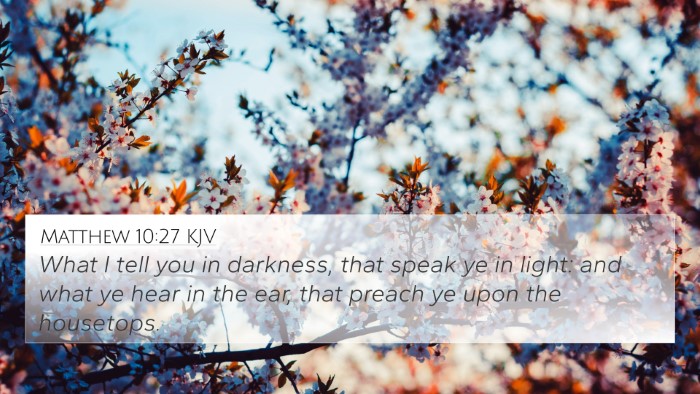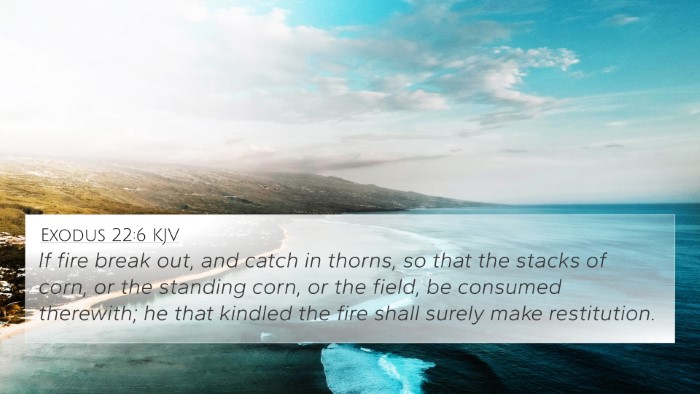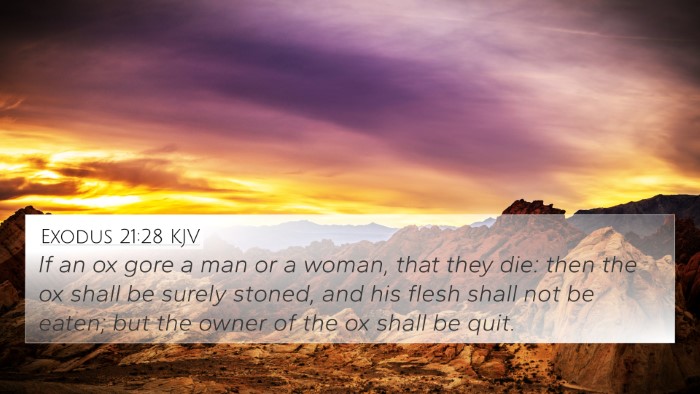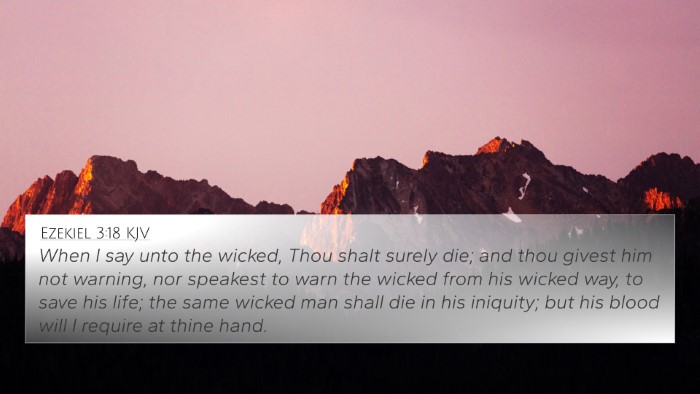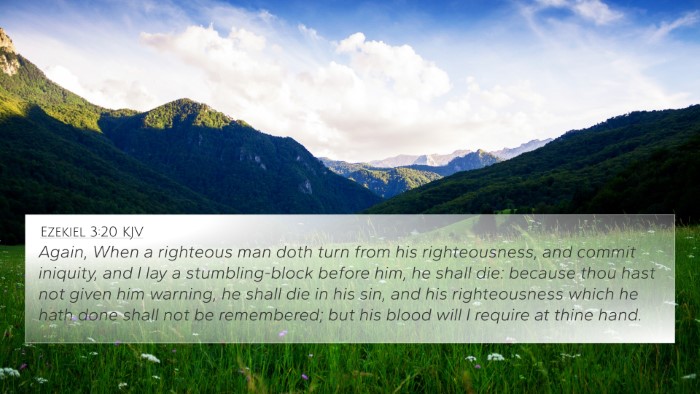Understanding Deuteronomy 22:8
Verse: "When thou buildest a new house, then thou shalt make a battlement for thy roof, that thou bring not blood upon thine house, if any man fall from thence."
Summary of Meaning
The instruction in Deuteronomy 22:8 highlights the importance of safety and responsibility in the construction of one's home. This verse emphasizes that a homeowner must take precautions to protect others, reflecting God’s concern for community well-being.
Commentary Insights
- Matthew Henry: Henry explains that the command to build a battlement serves both a practical and moral purpose. It demonstrates love for one’s neighbor by ensuring their safety, affirming that our actions, even in the private sphere of our homes, carry implications for others.
- Albert Barnes: Barnes notes that the battlement represents the call to prevent accidents and reflects broader spiritual principles of vigilance and care. He interprets the command as God’s way of requiring diligence in ensuring safety, which directly relates to the behavior expected of believers.
- Adam Clarke: Clarke elaborates on the verse by connecting it to the idea of accountability. He suggests that the responsibility to safeguard others is a reflection of one’s character and obedience to God's law. Failing to construct a battlement would illustrate negligence and a lack of care for those around us.
Biblical Cross-References
This verse connects with several other scriptures that reinforce the themes of safety, community responsibility, and moral obligation:
- Exodus 21:28-29: Discusses the consequences of negligence regarding animal handling, paralleling the responsibility for protecting others.
- Leviticus 19:18: Highlights the command to love one’s neighbor, tying into the moral obligations presented in Deuteronomy 22:8.
- Matthew 7:12: Jesus’ teaching on the Golden Rule aligns with the spirit of care expressed in ensuring safety.
- Luke 10:25-37: The Parable of the Good Samaritan illustrates active concern for others’ safety and wellbeing.
- Philippians 2:4: Encourages looking out for the interests of others, reinforcing personal responsibility within community living.
- Proverbs 27:12: Warns of the wise man who sees danger and takes precautions, directly relating to the actions prescribed in Deuteronomy.
- Galatians 6:2: Calls for bearing one another's burdens, supporting the idea of mutual responsibility among community members.
- 1 Timothy 5:8: Stresses the importance of providing for one’s household, resonating with the idea of caring for others.
- James 1:27: Defines pure religion as caring for orphans and widows, emphasizing the communal aspect of responsibility.
- 1 John 3:17: Discusses the importance of helping those in need, illustrating the overarching theme of responsibility towards others.
Thematic Bible Verse Connections
Deuteronomy 22:8 serves as a part of a larger framework involving safety, moral obligation, and responsibility towards others within both the Old and New Testaments.
Safety and Community Well-being
The biblical texts generally stress the need for individual actions to consider the implications for community safety, as seen in the cross-references above.
Connecting Old and New Testaments
The connection between the legalistic commands in the Old Testament and the relational principles taught by Jesus in the New Testament highlights a continuity in God’s desire for His people to act in love and responsibility.
Inter-Biblical Dialogue
This verse encourages a conversation across scriptures, linking God's instruction for physical safety with spiritual integrity and communal responsibility. This dialogue informs Christian practice and ethical behavior.
Conclusion
Deuteronomy 22:8 succinctly encapsulates significant biblical themes surrounding responsibility, safety, and community love. By engaging with this text and its broader implications through cross-referencing, believers are called to reflect God's concern for others in their actions.
Tools for Bible Cross-Referencing
For readers wishing to explore further, utilizing a bible concordance or a bible cross-reference guide can allow for deeper insights into the thematic connections between verses.
How to Use Cross-References Effectively
To deepen understanding, consider studying cross-referenced themes in the Bible by engaging in cross-reference Bible study methods and utilizing bible reference resources to uncover the interlinked nature of scripture.
